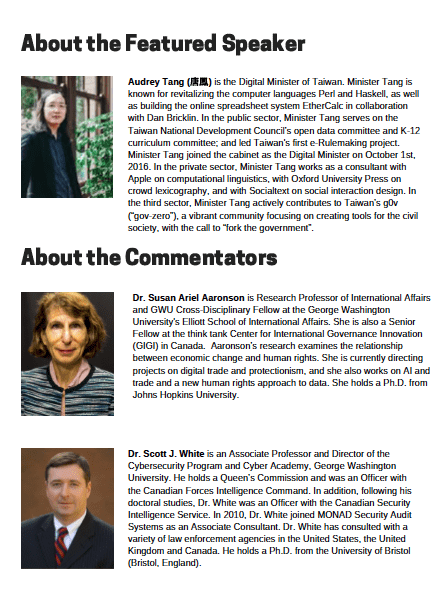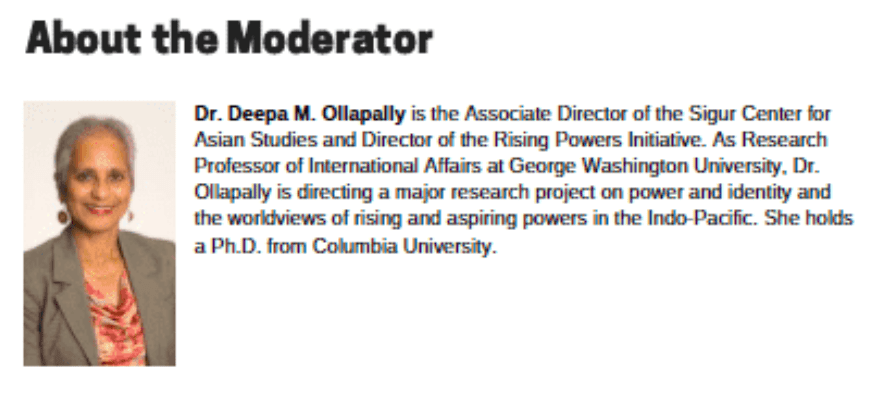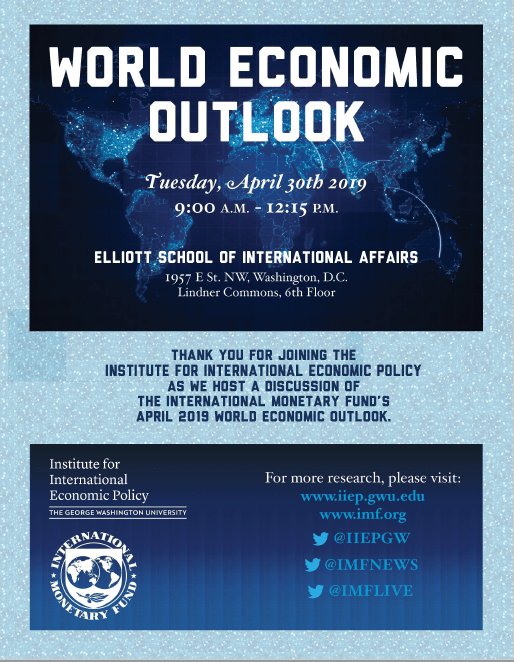Maggie Chen
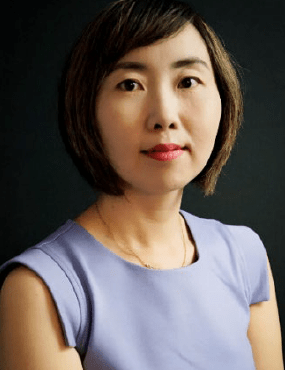
George Washington University
Maggie Chen is a professor of economics and international affairs at The George Washington University. Her areas of research expertise include foreign direct investment, international trade, and regional trade agreements and her work has been published extensively in academic journals such as American Economic Journal: Applied Economics, American Economic Journal: Economic Policy, and Journal of International Economics. She has worked as an economist in the research department of the World Bank, a trade policy advisor at the U.S. Congressional Budget Office leading policy analysis on the Trans-Pacific Partnership Agreement, and a consultant for various divisions of the World Bank and the International Finance Corporation advising issues ranging from foreign direct investment and technical trade barriers to the Belt and Road Initiative and contributing to various World Bank flagship studies and the World Development Report. She is a co-editor of the Economic Inquiry. Professor Chen received her Ph.D. and M.A. in Economics from the University of Colorado at Boulder and her B.A. in Economics from Beijing Normal University.
Malhar Nabar
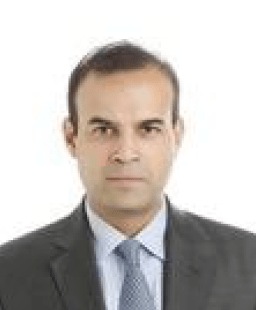
International Monetary Fund
Malhar Nabar is Deputy Division Chief in the World Economic Studies Division, where he is part of the core team that produces the WEO. In previous roles at the IMF, Malhar has covered China and Japan, and was Mission Chief to Hong Kong SAR. Prior to joining the IMF, Malhar taught at Wellesley College. His research interests are in investment and productivity growth, and he has published in various journals including Journal of Development Economics, Economic Inquiry, and Journal of Macroeconomics. He holds a PhD from Brown University and a BA from Oxford University.
Romain Duval
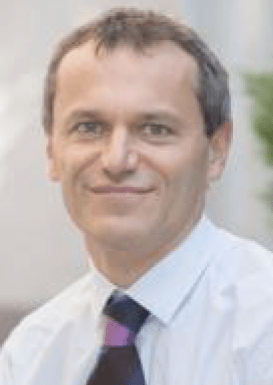
International Monetary Fund
Romain Duval is an advisor to the Chief Economist in the IMF Research Department, where he also leads the Structural Reforms Unit. Previously he was the division chief for Regional Studies of the IMF Asia Pacific Department and led the Regional Economic Outlook. Prior to joining the Fund, he was the division chief for Structural Policies Surveillance at the OECD Economics Department, where he was also the editor of the flagship publication Going for Growth. He has published extensively in leading academic and policy-oriented journals on a wide range of topics including the economics and political economy of labor and product market regulations, growth, productivity, trade, monetary policy, equilibrium real exchange rates, and climate change economics. Over the years his research has also been profiled numerous times in leading global newspapers and magazines such as The Economist, Financial Times, Wall Street Journal and Bloomberg.
Zia Qureshi

Brookings Institution
Zia Qureshi is a Visiting Fellow at the Brookings Institution. He also advises and consults for several other organizations. His research and commentary cover a broad range of global economic issues, including a recent focus on how technology is reshaping the economic agenda. He has published widely on these issues. Prior to joining Brookings, he worked at the World Bank and the IMF for thirty-five years, holding several leadership positions, including serving as Director, Development Economics, at the Bank and as Executive Secretary of the Joint Bank-Fund Ministerial Development Committee. He represented the Bank at major international forums, including the G20. He led a number of Bank and Fund flagship publications. He holds a DPhil in Economics from Oxford University, where he was a Rhodes Scholar.
Natalija Novta
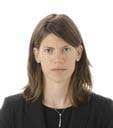
International Monetary Fund
Natalija Novta is an Economist at the IMF’s Research Department, where she works on the World Economic Outlook. She previously worked in the Western Hemisphere and the Fiscal Affairs Departments contributing to the Regional Economic Outlook and the Fiscal Monitor, respectively. Before joining the Fund, she worked at the Fiscal Council of Serbia, the Serbian Ministry of Finance, and the National Bureau of Economic Research. She holds a PhD in Economics from New York University, and a BA from Harvard University. Her research has focused on economic development, conflict, climate change, trade flows, and public sector employment. She has published at the Quarterly Journal of Economics, Journal of the European Economic Association, Journal of Conflict Research and International Tax and Public Finance.
Paulo Bastos

World Bank
Paulo Bastos is a Senior Economist with the Development Research Group of the World Bank in the Trade and International Integration Unit (DECTI). His research interests include the drivers of firm performance in export markets, links between globalization and technological change, and the distributional impacts of trade and FDI. His recent research exploits large administrative data sets to address these topics. He has published in scholarly journals such as the American Economic Review, Journal of International Economics, Journal of Development Economics, Journal of Industrial Economics and International Journal of Industrial Organization. Prior to joining the World Bank, he held positions at the Research Department of the Inter-American Development Bank, the European Commission and the University of Nottingham. He holds a Ph.D. in Economics from the University of Nottingham and a B.A. in Economics from the University of Porto.
